A Day at the South East and Pacific Community Development Training – Working with the System
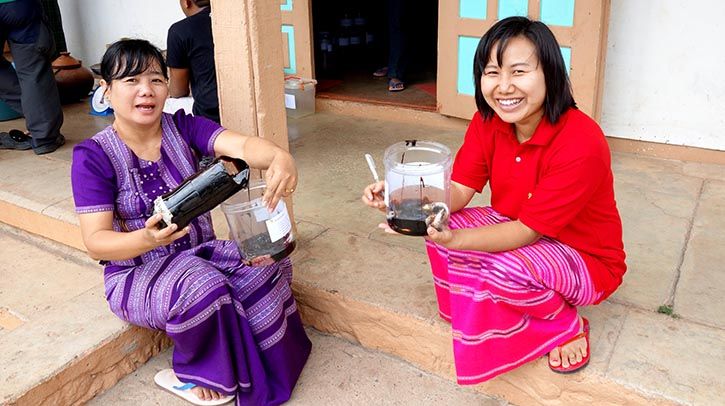
I recently had the opportunity to pause for a day and observe the activities of the 2nd Annual South East Asia and Pacific Community Development Training, which Andrew Joyce introduced in a blog last month. This event is hosted by the Episcopal Community Action for Renewal and Empowerment Foundation (E-CARE), the community development arm of the Episcopal Church in the Philippines (ECP).
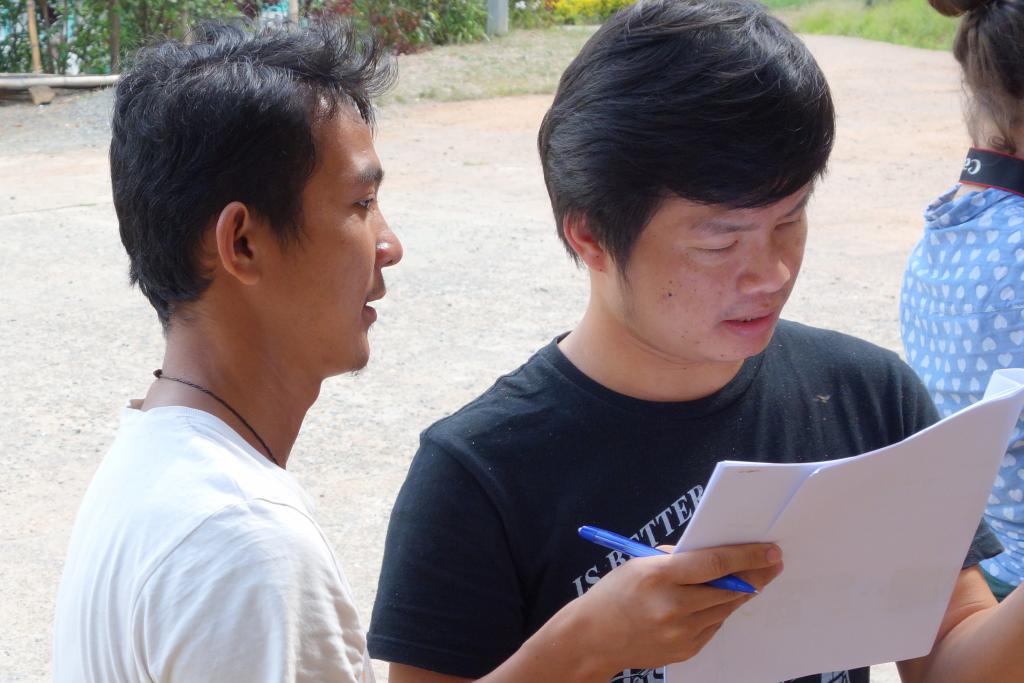
Each module of this training was taught by a member of the E-CARE staff, bringing the knowledge and insights of that Foundation to those that had come to The Philippines. Modules include topics such as ‘community visioning,’ ‘project management’ and ‘program evaluation.’ On the day that I visited, the group was learning about Natural Farming techniques, an approach that E-CARE has introduced into all of its agriculture related programming.
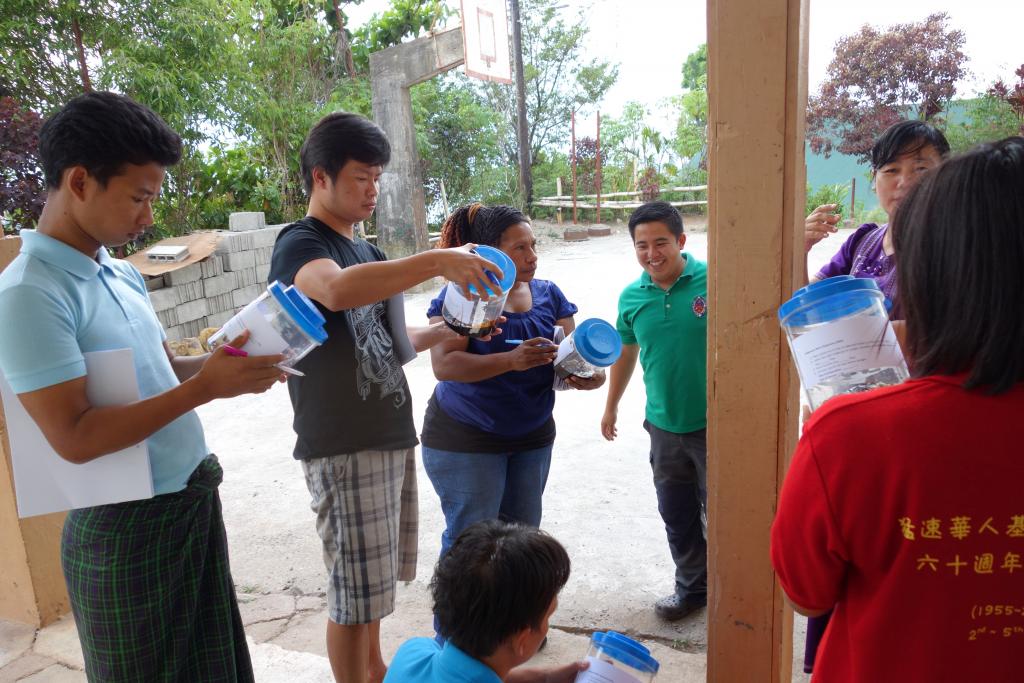
…provides participants with an opportunity to develop the basic knowledge and skills necessary to produce food of high nutritional quality in sufficient quantity by working with natural systems rather than seeking to dominate them. Organic growers encourage and enhance biological cycles within the farming system, involving plants, animals, microorganisms and, most importantly, soil flora and fauna….
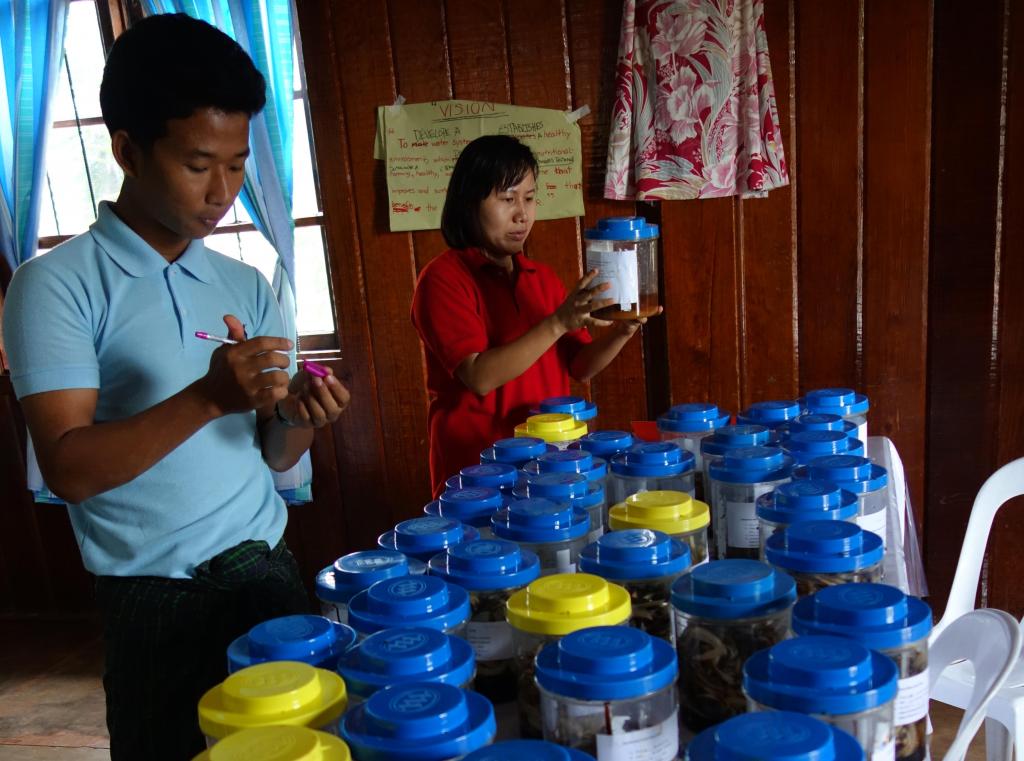
I had a great time watching the group mix and measure, consult their notes and each other, as they tried to figure out each recipe. Most importantly, it was inspiring to see their minds working out what ideas they will take back with them to their own countries and the farmers that they work with there.
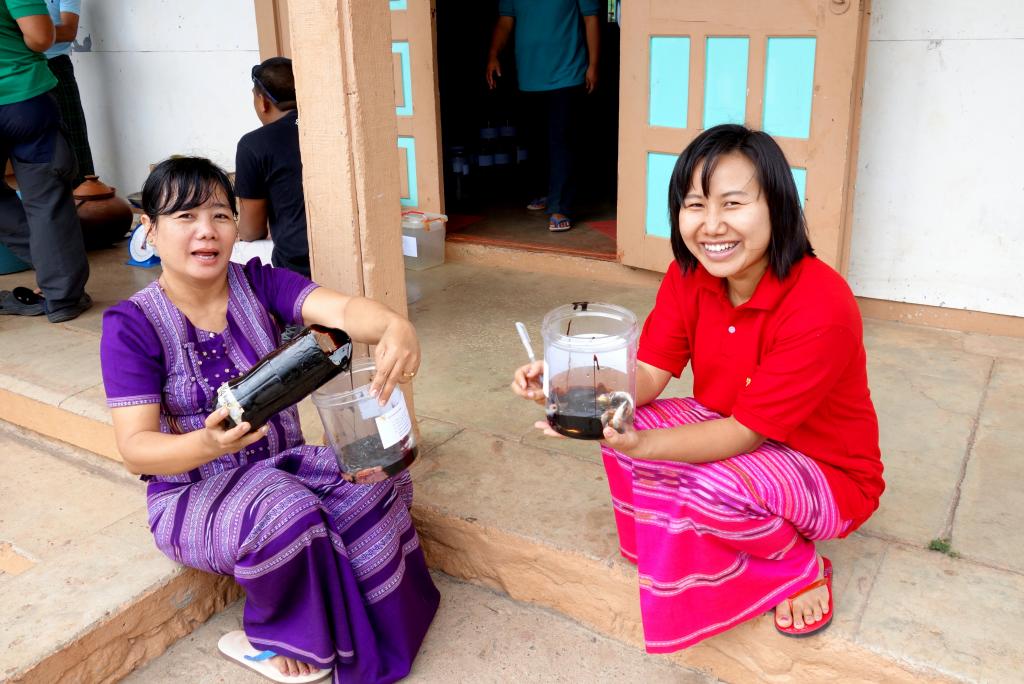
—————————————–

Sara Delaney is a Senior Program Officer at Episcopal Relief & Development.
Images: Top, Two participants of the E-CARE Training. Middle 1, The group getting ready for the training activity. Middle 2, Participants keeping track of the jars. Bottom, Two participants with their jars.


